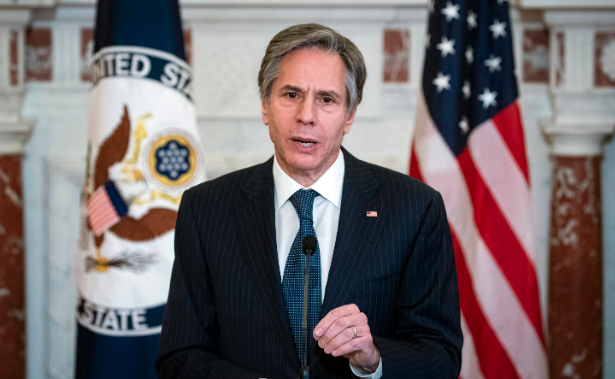Israel
Israel War Debates Intensify in Washington

In the marbled corridors of Washington’s power, where the echo of political discourse vies with the distant thunder of the Israel war, American lawmakers find themselves at a crossroads of conscience and allegiance. As Gaza’s suffering broadcasts in stark imagery across screens and headlines, the perennial U.S. allegiance to Israel is weighed against a tide of humanitarian outcry. This unfolding debate, far from the war’s front lines, is a complex duel of ethics and strategy, posing the pressing inquiry: How will America navigate the delicate balance of its historical support for Israel while addressing the deepening human cost of the conflict in Gaza.
The Israeli-Palestinian conflict, with its labyrinthine history of strife, carries with it the weight of countless battles, both military and moral. As history has often shown us, the path to peace in this region is fraught with complexities that echo the very birth of Israel and the subsequent displacement and suffering of the Palestinian people. Today, these echoes reverberate through time, as the current conflagration in Gaza ignites a fiery debate in the corridors of American power.
Through the acrid haze of Gaza’s battered streets, where the air tastes of dust and fear, echoes a distant political tumult in the corridors of Washington’s power. In the sanctum of American democracy, the tremors of war resonate, shaking the foundations of political allegiance and doctrine. Democratic lawmakers, once a monolith of unwavering support for Israel, now exhibit the fissures of introspection and dissent within their collective stance.
It is with a certain moral heft that 58 Democrats set forth a document of dissent—a letter etched with the ink of unease, dispatched to the desk of Secretary Blinken. Their words, seeking to press upon the conscience of American foreign policy, are less a mere legislative gesture than a mirror to the shifting soul of public sentiment. They plead for restraint, for a recognition of the humanity that quivers beneath the might of military machinery.
In the broader narrative, this is but a political subplot, yet it reflects the broader human drama—a testament to the resilience of those who advocate against the tide, who cling to hope amid the politics of despair. Their call for compassion is, at its core, an acknowledgment of the lives caught in the crossfire: a recognition of the Gaza mother cradling her child through the shuddering night, of the stoic Gazan fisherman eyeing an ever-restricted sea, of the Israeli father tracing the path of a rocket with a grave eye. It is about their survival, their coping, their inherent human will to carve out existence from the ruins—a testament to an adaptability that knows no borders, no politics, no ceasefire.
This internal conflict among U.S. Democrats signals a pivotal shift, perhaps a reawakening of the very values that have long underpinned American foreign policy. The debate transcends mere political posturing, cutting to the heart of what it means to advocate for democracy and human rights on the global stage. As Rep. Ro Khanna aptly noted, the indiscriminate bombing of civilians stands at odds with America’s self-styled image as a precise and principled actor on the world stage. The comparison to the surgical strike against Osama Bin Laden is telling, underscoring a call for the same precision in current conflicts.
President Biden’s administration, in its steadfast rejection of a ceasefire, advocates for “humanitarian pauses” — a stance that many critics deem insufficient. This strategy, couched in the language of pragmatism, raises questions about the very nature of allyship and the ethical ramifications of the military aid that flows unabated from American shores to the heart of Israeli defense forces. Israeli Prime Minister Netanyahu’s dismissal of a ceasefire until the release of captives by Hamas further complicates an already fraught narrative, leaving little room for the cessation of hostilities.
The anguish and urgency of the moment are palpable in the voices of those who stand in opposition to the continued violence. The halls of American democracy, often filled with the murmur of legislative discourse, now resound with the impassioned pleas for a reevaluation of the U.S.-Israel relationship. The streets of Gaza, meanwhile, lay in stark contrast, littered with the debris of conflict and the cries of the afflicted, a harrowing tableau of the cost of war.
In the unfolding drama of the Israel-Hamas conflict, Washington’s response has revealed not only the divisions within American politics but also the broader, global ramifications of this historical struggle. The letter from the Democratic legislators, the administration’s response, and the enduring violence all contribute to a narrative that is as much about the future of the Middle East as it is about the soul of American foreign policy. As we witness this inflection point, one must wonder: Will the tide of public and political opinion in the United States lead to a reckoning with the longstanding narratives that have justified its unwavering support for Israel, or will strategic interests continue to overshadow the cries for peace and justice emanating from the rubble of Gaza?












You must be logged in to post a comment Login